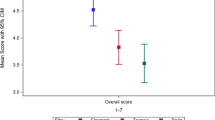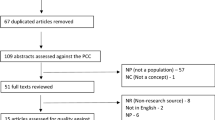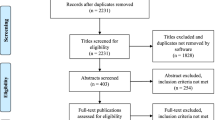Abstract
With the introduction of training programmes and logbooks for basic postgraduate training and subspecialty training, the European Board and College of Obstetrics and Gynaecology has given impulses to harmonise training in obstetrics and gynecology in the European Union. Current changes in the practice of medicine, among which the European Working Time Directive, numbers of surgical procedures decreasing, more demanding patients and a change in work ethos, challenge both trainers and trainees to optimise postgraduate training. For training to be effective and efficient, it is necessary to clearly define learning goals and outcomes and to create a stimulating educational environment. This requires trainers who (a) have knowledge of adult learning and educational theory and (b) will act as facilitators of the learning process of postgraduate trainees. Most of the doctors involved in postgraduate training have not had any formal formation to be a trainer. Teacher professionalisation offers the medical professional a framework to increase efficiency as a trainer. In this article, an introduction to educational practice for the medical professional is given. Several aspects of adult learning, such as the learning cycle, appraisal and assessment, and giving feedback, are discussed.


Similar content being viewed by others
References
Spencer J (2003) ABC of learning and teaching in medicine: Learning and teaching in the clinical environment. BMJ 326:591–594
Lake FR (2004) Teaching on the run tips: doctors as teachers. Med J Aust 180:415–416
Gibson DR, Campbell RM (2000) Promoting effective teaching and learning: hospital consultants identify their needs. Med Educ 34:126–130
Carr S (2003) Education of senior house officers: current challenges. Postgrad Med J 79:622–626
Spencer JA, Jordan RK (1999) Learner centred approaches in medical education. BMJ 318:1280–1283
Kaufman DM (2003) ABC of learning and teaching in medicine: applying educational theory in practice. BMJ 326:213–216
Hutchinson L (2003) ABC of learning and teaching in medicine: educational environment. BMJ 326:810–812
Lake FR, Ryan G (2004) Teaching on the run tips 4: teaching with patients. Med J Aust 181:158–159
Parsell G, Bligh J (2001) Recent perspectives on clinical teaching. Med Educ 35:409–414
Paice E, Heard S, Moss F (2002) How important are role models in making good doctors? BMJ 325:707–710
Gordon J (2003) ABC of learning and teaching in medicine: one to one teaching and feedback. BMJ 326:543–545
Harris D (1998) Lectures. In: Peyton JWR (ed) Teaching and training in medical practice. Manticore Europe Limited, Rickmansworth, UK, pp 192–207
Lake FR, Ryan G (2004) Teaching on the run tips 3: planning a teaching episode. Med J Aust 180:643–644
Lake FR, Hamdorf JM (2004) Teaching on the run tips 5: teaching a skill. Med J Aust 181:327–328
Walker M, Peyton JWR (1998) Teaching in theatre. In: Peyton JWR (ed) Teaching and learning in medical practice. Manticore Europe Limited, Rickmansworth, UK, pp 171–180
Johannsson H, Ayida G, Sadler C (2005) Faking it? Simulation in the training of obstetricians and gynaecologists. Curr Opin Obstet Gynecol 17:557–561
Kolkman W, Wolterbeek R, Jansen FW (2005) Gynecological laparoscopy in residency training program. Dutch perspectives. Surg Endosc 19:1498–1502
Conlon M (2003) Appraisal: the cataclyst of personal development. BMJ 327:389–391
Riley W (1998) Appraising appraisal. BMJ 317:2
Lake FR, Ryan G (2005) Teaching on the run tips 8: assessment and appraisal. Med J Aust 182:580–581
Lake FR, Hamdorf JM (2004) Teaching on the run tips 6: determining competence. Med J Aust 181:502–503
Moothy K, Munz Y, Sarker SK, Darzi A (2003) Objective assessment of technical skills in surgery. BMJ 327:1032–1037
Hesketh EA, Anderson F, Bagnall GM, Driver CP, Johnston DA, Marshall D, Needham G, Orr G, Walker K (2005) Using a 360° diagnostic screening tool to provide evidence trail of junior doctor performance throughout their first postgraduate year. Med Teach 27:219–233
Smee S (2003) ABC of learning and teaching in medicine: skill based assessment. BMJ 326:703–706
Norcini JJ (2003) ABC of learning and teaching in medicine: work based assessment. BMJ 326:753–755
King J (1999) Giving feedback. BMJ 318:2
Liberman AS, Liberman M, Steinert Y, McLeod P, Meterissian S (2005) Surgery residents and attending surgeons have different perceptions of feedback. Med Teach 27:470–472
Vickery AW, Lake FR (2005) Teaching on the run tips 10: giving feedback. Med J Aust 183:267–268
Author information
Authors and Affiliations
Consortia
Corresponding author
Rights and permissions
About this article
Cite this article
Goverde, A.J., On behalf of the Standing Committee on Training and Assessment of the European Board and College of Obstetrics and Gynaecology. Train the trainers!. Eur Clinics Obstet Gynaecol 2, 86–90 (2006). https://doi.org/10.1007/s11296-006-0028-7
Received:
Accepted:
Published:
Issue Date:
DOI: https://doi.org/10.1007/s11296-006-0028-7




